Axes need to fall at HBO's corporate levels, not its creative | MARK HUGHES COBB
Picture a Max exec shooting himself in both feet, with hands chock full o' pistols, said projectiles penetrating the hull of his sinking ship, which is already on fire and about to explode from pent-up gases.
The rollout of "Max," which didn't have the brains to leave the Coke in New Coke, has been an utter disaster. A thud, a dud, a chunk of crud.
More: Songwriters' best bet for fame: Hitch that lyric sheet to a star | MARK HUGHES COBB
Yes, "Max," because it's tres difficult to search for Max without getting billions of other hits for hair products, weightlifters humble-bragging, busy folks saving valuable nano-seconds by refusing to type out "maximum," and oh yeah, several billion people, dogs, services, or dirigibles named Max.
"Max" will catch on just as "Grogu" will defeat "Baby Yoda." Hey HBO, maybe next time dub it The. If your intent is making a product difficult to find, or define, you're on the right ― train-bearing-down-on-you, the train being subscriber cancellations ― track.
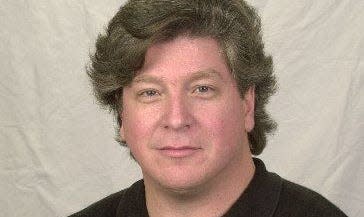
So, for the madmen, you're changing your long-known brand to something with less pizzazz. Do you:
Cut one of the most recognizable names in the entertainment business, one long associated with quality?
Stick with a forgettable three-letter combo associated mainly with up-sizing fatty food?
Fail to think about how folks would search?
For the brain donors at "Max," all the above.
Not only was the tech not ready ― long delays, freezes, that endless spiral of Wait. I'm. I'm ... Thinking, Yeah, That's It, Thinking ― but the powers-that-don't have cut many, if not most, of its best shows.
Here's the trifecta of decisions thus far:
Change the name to something bland and hard to search.
Raise prices via a confusing tier, some with ads, but all with Ad in their names, because that's a word long-time subscribers to HBO want to see, being as escaping ads was part of the cable network's attraction, much as staying open late and on Sundays were chief draws for the mall.
Cut your best shows, 'cause sometimes they're expensive. Offer subscribers less for more.
I joke often about a subject being too long for this column, but looking at what HBO ― However long it lasts, folks will call it HBO, because Wanna watch Max? could slip into Who's on first? quickly. Max the dog, or Max the pool boy? Is this the m'axe of Theseus? ― has axed, yeah, it's too much.
The latest last straw was "Perry Mason." Like my fellow long-lived humans, when hearing of a new series by that name, I recalled the stentorian, somewhat adenoidal intonations of Raymond Burr, the defense lawyer seemingly carved out of granite. Chip away as Ham Burger ― even as a child, watching the reruns, I'd groan ... and take notes ― might, Perry could no more be swayed into losing a case than Mount Rushmore could be urged into a twerk.
Perry was a hit long before that 1957-1966 hour-long smash, a multiple Emmy winner and long-time ratings juggernaut, precursor to every TV crime/legal drama since. Erle Stanley Gardner wrote more than 80 novels and four short stories about Perry, inspired by real-life trial attorney Earl Rogers, who had a 74-3 record in murder cases. When Gardner died in 1970, at 80, he was the best-selling American writer of the 20th century, having sold something like 100 million copies of his books.
Warner Bros. adapted six Perry feature films, and CBS Radio broadcast a Perry serial from 1943-1955, which it tried to turn into a TV series, but facing opposition from Gardner ― TV wanted romance ― the project became instead "The Edge of Night," starring a detective turned attorney (named Mike Karr), a soapy-crime tale that ran for almost 30 years, creating 7,420 episodes.
When CBS-TV did evolve "Perry Mason," Gardner reportedly picked Burr out of the rash of actors vying for the role. Burr, a self-described "fat heavy," had become a theater, film and radio pro playing villains often, including, most memorably, the white-haired cheater, wife- and dog-killer Lars Thorwald, in Alfred Hitchcock's "Rear Window."
After the series, Perry Mason was brought back for 30 made-for-TV films, airing 1985 to 1995, most starring Burr, until his death in 1993.
Out of that shadow stepped Robert Downey Jr., who planned to star in a reboot first announced in 2016. After his feature-film schedule ― something Iron ... guy? ― interceded, he executive produced, with wife Susan Downey. The setting moved to Los Angeles in the Great Depression, back in line with Gardner's pulp fiction.
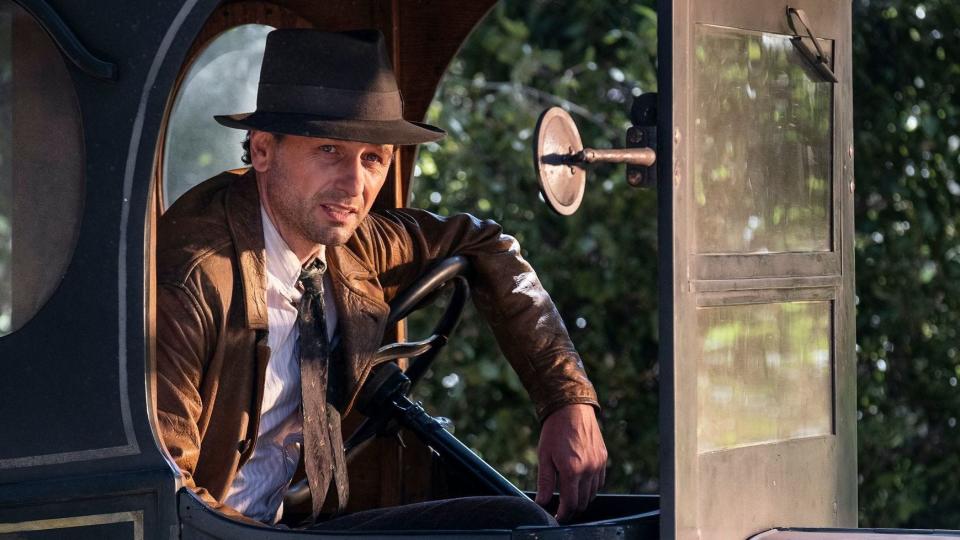
For Perry, they hired no less than Matthew Rhys, who after his turns in "The Americans" could safely be called the greatest actor of his generation, or several around them, and likewise added Tatiana Maslany, possibly the greatest actress, for HER turns (When you see, you'll understand the plurals) in "Orphan Black."
Add to that John Lithgow as Perry's mentor, "E.B." Jonathan; Juliet Rylance (step-daughter of famed Shakespearean Mark Rylance), far more complex than the previous TV Della; rising star Chris Chalk ("12 Years a Slave," "The Newsroom," "Homeland," "Justified") as Paul Drake, a Black beat cop who goes P.I. due to department corruption; the made-for-noir pugnacious face of Shea Wigham; and Katherine Waterston, Gretchen Mol, Jefferson Mays, Nate Corddry, Stephen Root, Robert Patrick, Matt Frewer, Sean Astin, Hope Davis ....
Gritty-beautiful, dark to the point of being difficult to stomach, this "Perry Mason" was unlike most anything seen on TV, up to and including that first season of "True Detective." It possessed a grim beauty, the glamour, shimmer and sheen overlaid over stark ugliness reminiscent of the best noir ― but in color ― and of David Lynch. Beautifully written, acted and shot, it was like having a new "Chinatown" every Sunday night, for two too-short seasons.
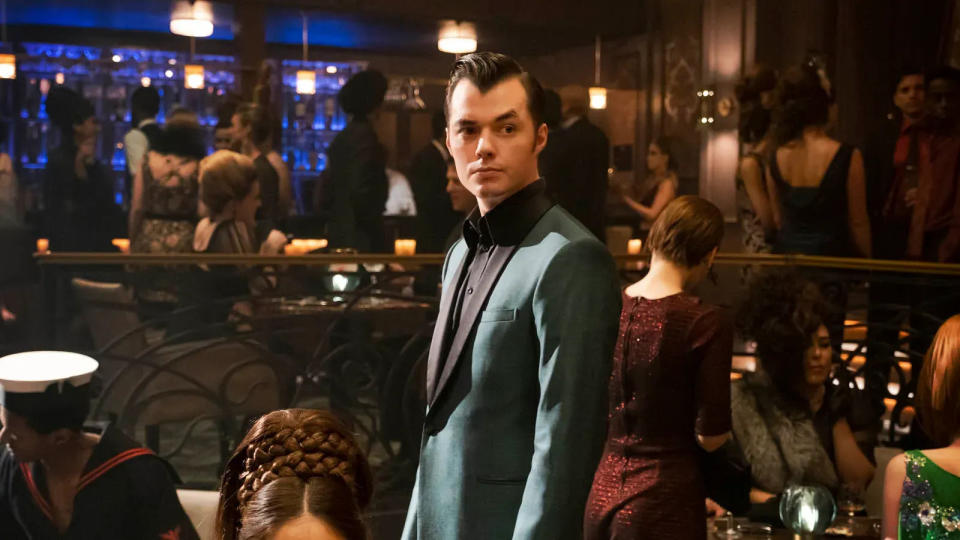
And penny-pinchers who know the price of everything, yet the value of nothing, killed it. As they did "Pennyworth," far and away the best DC TV series, a punk Bond/young Michael Caine re-imagining of Alfred Pennyworth and pals, including a couple named Martha and Thomas Wayne. The vibrant, go-go-London slashing visions, and the Clash production meeting late-'60s rock/swing sounds made it a joy, but "Pennyworth" also dug into stories, characters and ideas, building an intriguing arc that would bend, eventually, toward Gotham, but .... "Max" killed it.
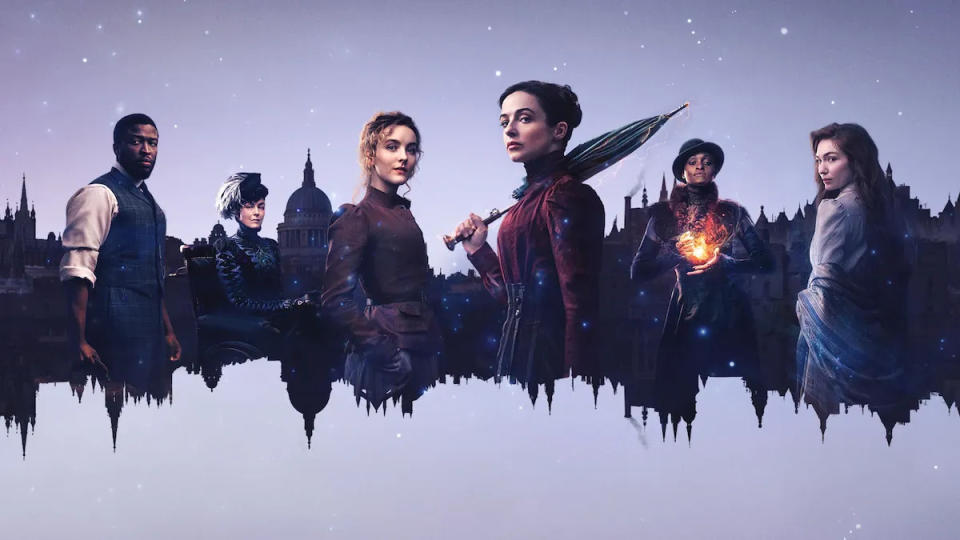
Also dead: "Mrs. Fletcher," starring Kathryn Hahn and based on the hit novel by Tom Perotta ("Election," "Little Children," "The Leftovers"); "Full Frontal with Samantha Bee;" the dazzling and dizzying "Westworld," like "Battlestar Galactica," another case of a sequel far exceeding source material; "At Home with Amy Sedaris;" "Here and Now," which HBO might have noticed was the product of "Six Feet Under" and "True Blood" creator Alan Ball; likewise "K Street," by Steven Soderbergh; "Love Life" and "Made for Love," both clever comedic twists on contemporary romance; "Lovecraft Country," a brainy horror-SF series; "Raised by Wolves," helped by Ridley Scott; "Snowpiercer," which brought in Jennifer Connelly and Daveed Diggs to expand Bong Joon Ho’s post-apocalyptic thriller, itself built after a hit graphic novel; smart dramedy "Run," in which Domhnall Gleeson and Merritt Wever played ex-college sweethearts who abandoned their adult lives and families on a whim ― one texts the other "RUN," and the other replies ― based on a long-ago promise; "Vinyl," spearheaded by Mick Jagger and Martin Scorsese; "The Nevers," steampunk fantasy-action starring women as Victorian-era superheroes; hard-to-categorize “Space Ghost Coast to Coast,” Adult Swim’s longest-running series in history until "Max" death....
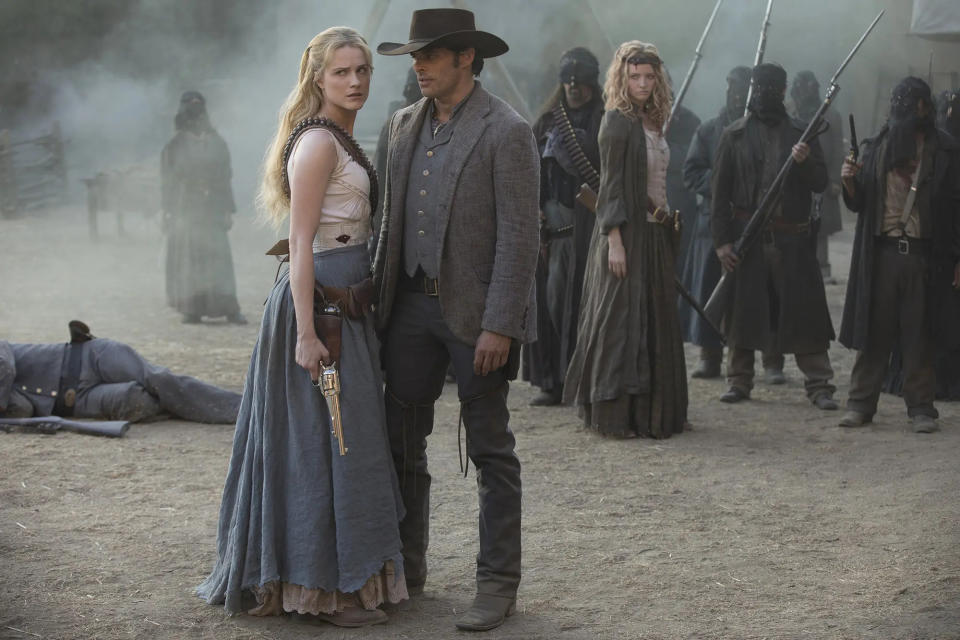
Oh, and while you're at it, wipe out Sesame Street.
Yes, not content with its already bloated PR disaster, "Max" exed-out Elmo.
When "Barry" ended, after four pitch-perfect seasons, so went the last reason to keep this service. This disastrous Discovery-CNN-HBO-Warner Bros. merger finally got clever enough to cancel powderpuff Chris Licht. Time for more axes to fall on the corporate, not the creative level.
Reach Tusk Editor Mark Hughes Cobb at [email protected].
This article originally appeared on The Tuscaloosa News: Axes need to fall at HBO's corporate levels, not its creative level
